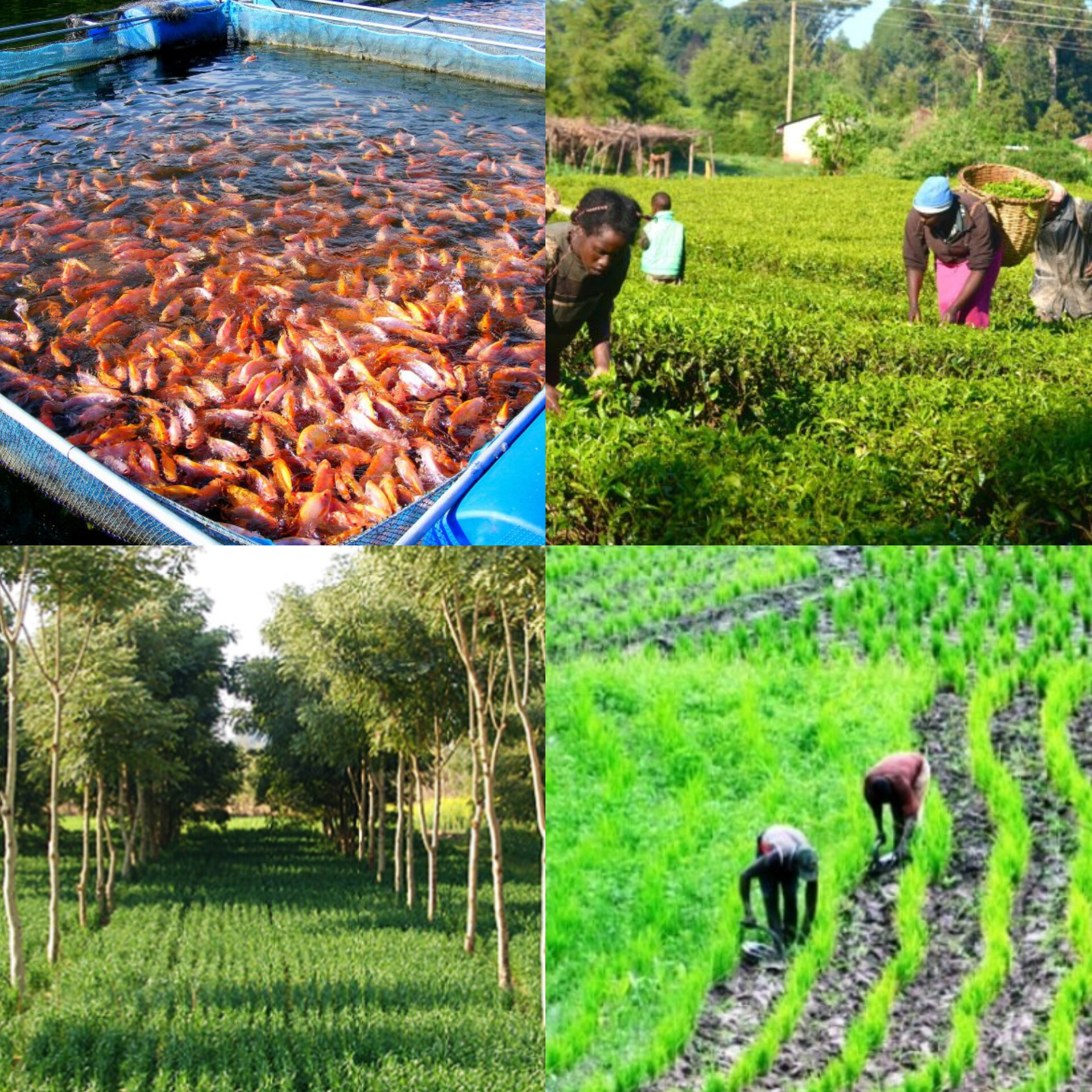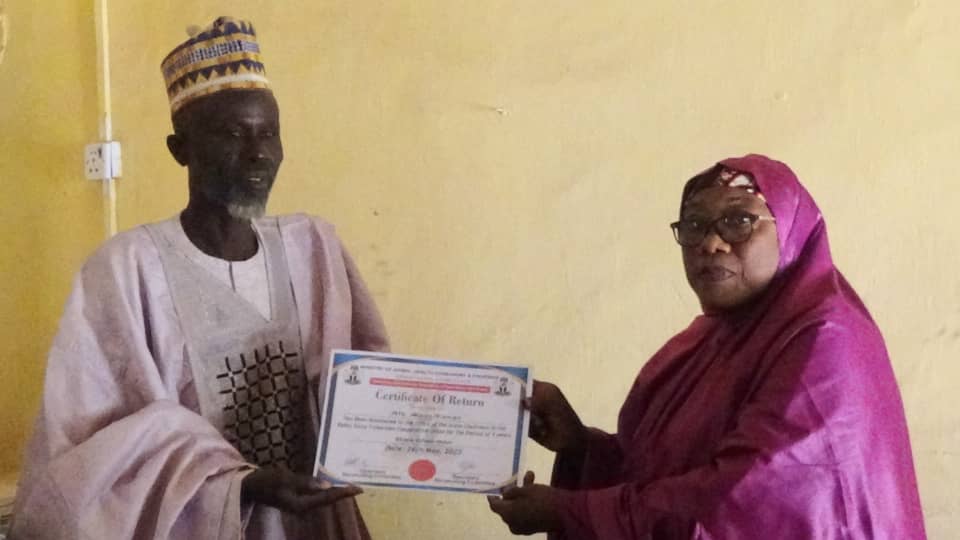Why farming must be a national priority in 2025. By Michael Oke

Why farming must be a national priority in 2025

As Nigeria continues to grapple with economic instability, widespread insecurity, and the soaring cost of agricultural inputs, the need to actively promote farming and agricultural activities in 2025 has become more urgent than ever.
Agriculture remains a critical pillar of the nation’s economy, contributing significantly to food security, employment generation, and rural development.

Despite mounting challenges, including poor access to credit facilities, inadequate infrastructure, fluctuating weather patterns, and security threats from banditry and herdsmen, farmers across the country have demonstrated commendable resilience.
Many have continued to embrace improved and timely agricultural practices, devising innovative ways to remain productive in the face of adversity.
From land preparation and crop cultivation to irrigation and livestock management, these farmers are pressing forward with various farming plans. Their unwavering commitment not only sustains local food production but also holds promise for broader economic revival.

This makes it imperative for both government and private stakeholders to scale up support, invest in input supply systems, and strengthen rural extension services to help ease the burdens that farmers bear.
Encouraging and sustaining this spirit of perseverance will be vital to ensuring national food sufficiency, reducing dependence on food imports, and unlocking the full potential of Nigeria’s agricultural sector.
Farmers should, therefore, be prepared for the onset of the farming season, as rainfall patterns vary across the country’s different zones. Many have already commenced or are preparing to return to their farms.
The rising demand for agricultural products nationwide promises significant revenue for farmers. While some are clearing land for the new planting season, others are still harvesting crops from the previous year.
Some farmers have begun tillage operations due to the varying patterns of heavy rainfall across Nigeria.
Meanwhile, in areas where rains have started, farming activities are in full swing, with early planters expressing satisfaction and optimism.
A number of farmers have already started tilling the land, planting melon, making heaps, and cultivating cassava. Over time, more will begin weeding their farms.
It is crucial to ensure the timely availability of agricultural inputs, enabling farmers to access them as needed. This support will boost production levels and enhance the development of the agricultural sector.
Crops such as amaranthus, okra, cabbage, pepper, maize, garden eggs, cucumber, and others are currently being cultivated by farmers practising irrigation.
Agroforestry
Certain neglected activities could significantly contribute to silvicultural development in the country. It is urgent to develop this sector, as it is both advocated and essential.
This includes site clearing and the planting of various fruit-bearing species, which will lead to increased production of fruits like mangoes, guavas, oranges, bananas, plantains, and oil palms.
These crops represent vital economic assets, contributing to manufacturing growth and driving economic expansion. The requirements for initiatives supporting supply and demand in this area are equally significant and must not be overlooked.
Fishing Industry
The development of the fishing industry is critically needed, driven by high demand. However, the escalating cost of inputs, particularly fish feed, is currently limiting output and reducing supply.
To support the growth of the fishing industry, general sanitation is essential. Ponds must be cleaned, proper medication administered, feeding effectively managed, and fish treated as necessary to ensure healthy production.
In addition, attention must be given to the development and marketing of table-size fish, improved smoking techniques, restocking efforts, the introduction and maintenance of fingerlings, and efficient stocking practices.
Livestock
The activities of herdsmen have become increasingly concerning due to the uncontrolled movement of cattle from one location to another.
This practice must be curbed to enable crop farmers to harvest their produce without interference and make profits.
There is a need for proper medication and marketing of cattle and sheep, alongside the integration of livestock farming with crop and poultry production.
Local fowl rearing, effective general sanitation, and improved stocking systems are crucial. Emphasis should also be placed on developing the livestock value chain and implementing effective management practices to enhance productivity.
Women in Agriculture
Women’s involvement in agribusiness, especially in the processing of crops into value-added products, requires urgent support and empowerment.
Many women are actively engaged in cultivating specific crops, demonstrating dedication to consistent farming throughout the year with the aim of earning profits.
They are involved in processing cassava into akpu and garri; groundnuts into oil and cake; melon into shelled melon; and soybeans into soya milk. Increasing their participation in livestock production is also essential.
Women play a key role in the marketing and distribution of agricultural produce.
Their efforts can significantly increase productivity and promote growth within the agricultural sector. Their contributions must be recognised and supported to strengthen agribusiness in the country.
Additionally, more effort is needed to expand cultivated land and make food readily available for the country’s growing population.
As we embrace this farming season, numerous opportunities lie ahead. However, discipline in agricultural practices is required. Government support is crucial for farmers, and it is advisable that we all return to the farms to increase productivity. Furthermore, we should explore export opportunities to expand our agricultural reach beyond borders.





The government must be pro active at curbing insecurity by prohibiting open grazing of cattle. Any serious livestock farmer should build ranch. If done, crop farmers will have a relief from destruction of their crops by cattle or killing by cattle herders.